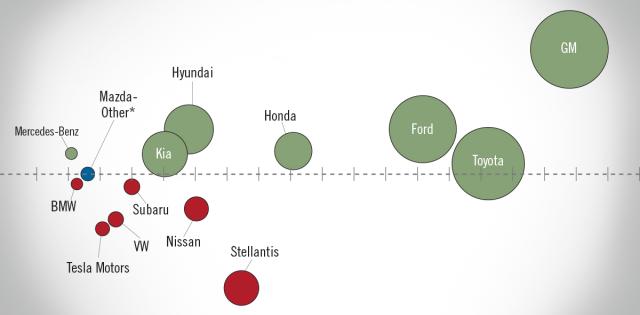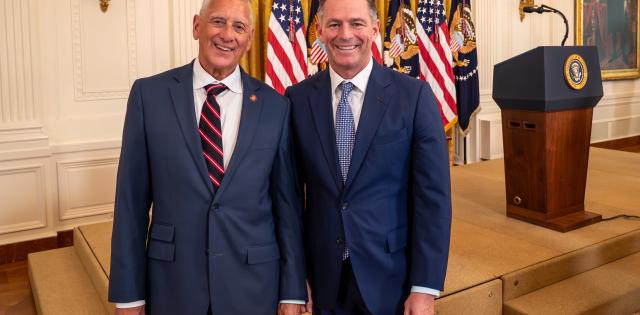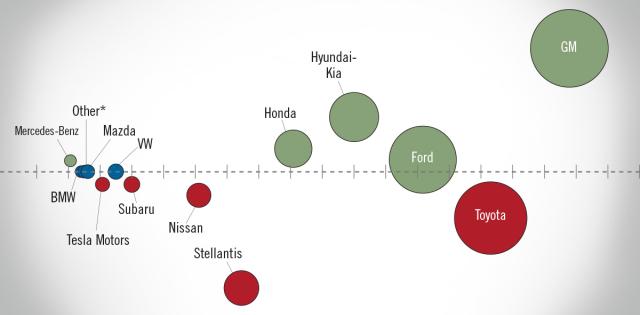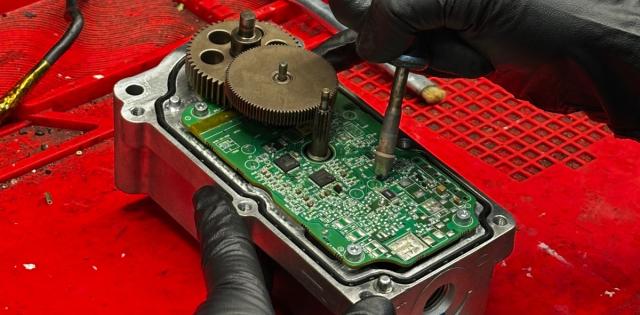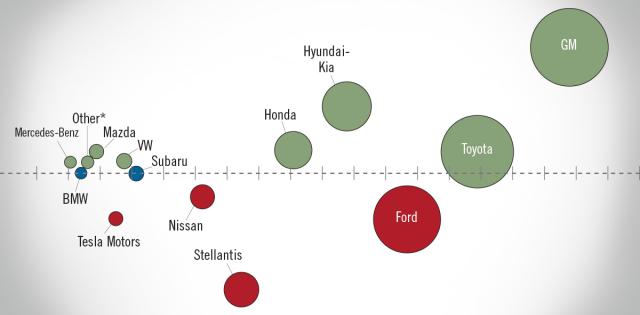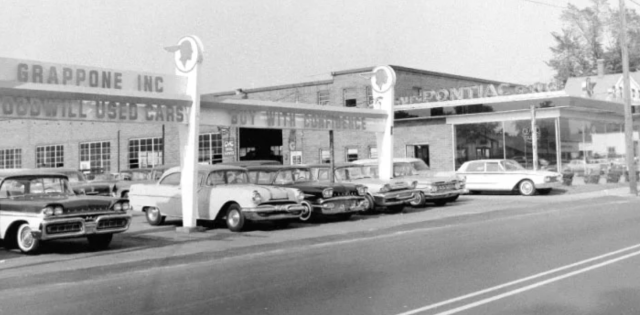The article below is sourced from Reuters Wire Service. The views and opinions expressed in this story are those of the Reuters Wire Service and do not necessarily reflect the official policy or position of NADA.
A group representing General Motors, Toyota Motor, Volkswagen and nearly all other major automakers on Monday sharply criticized the Biden administration proposal to drastically hike fuel efficiency requirements.
The Alliance for Automotive Innovation said the National Highway Traffic Safety Administration's (NHTSA) Corporate Average Fuel Economy (CAFE) proposal was unreasonable and requested significant revisions.
The industry group argued the plan would boost average vehicle prices by $3,000 by 2032 because of penalties automakers would face for not being in compliance, adding the figure "exceeds reason and will increase costs to the American consumer with absolutely no environmental or fuel savings benefits."
NHTSA in July proposed boosting requirements by 2% per year for passenger cars and 4% per year for pickup trucks and SUVs from 2027 through 2032, resulting in a fleet-wide average fuel efficiency of 58 miles (93 km) per gallon.
The American Automotive Policy Council, a group representing the Detroit Three automakers, separately on Monday urged NHTSA to halve its proposed fuel economy increases to 2% annually for trucks, saying the proposal "would disproportionately impact the truck fleet."
The group noted 83% of vehicles produced by Ford, GM and Chrysler parent Stellantis are trucks.
The White House and NHTSA did not immediately respond to requests for comment.
The auto alliance said last month automakers would face more than $14 billion in non-compliance penalties between 2027 and 2032.
U.S. automakers separately have warned the fines would cost GM $6.5 billion, Stellantis $3 billion and Ford $1 billion.
Automakers also raised alarm at the Energy Department's proposal to significantly revise how it calculates the petroleum-equivalent fuel economy rating for EVs in NHTSA's CAFE program, saying it would "devalue the fuel economy of electric vehicles by 72%."
GM said on Monday it could support NHTSA's proposal if the Energy Department rescinded its petroleum-equivalent proposal.
Volkswagen, which could face over $800 million in CAFE fines through 2032, said NHTSA's proposal "is arbitrary, capricious, and an abuse of the agency's discretion to set standards that are not feasible."
Subaru said even if the NHTSA proposal was feasible "the current proposals do not allow for sufficient fleet ramp up to the necessary levels of electric vehicles."
Automakers and the United Auto Workers union have previously also complained parallel rules proposed by the Environmental Protection Agency are not feasible and should be significantly softened.
For more stories like this, bookmark www.NADAheadlines.org as a favorite in the browser of your choice and subscribe to our newsletter here:


